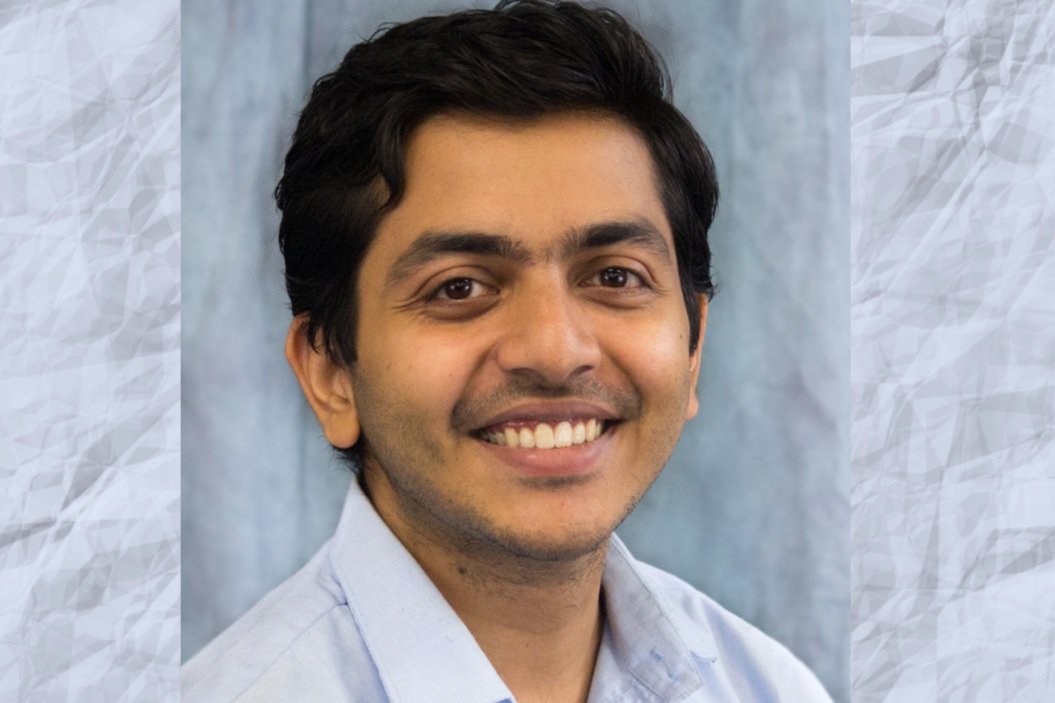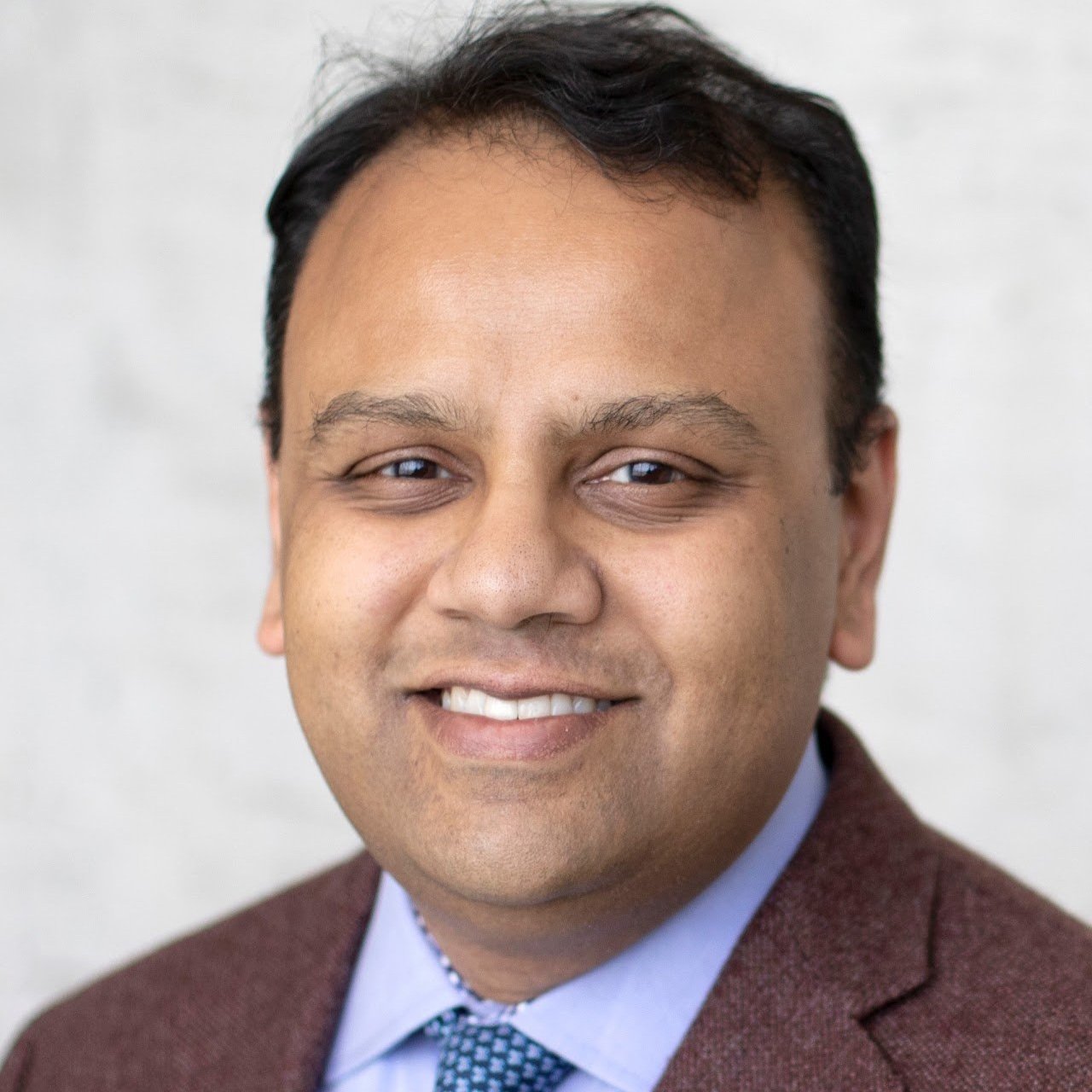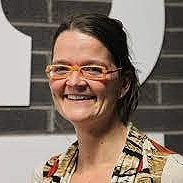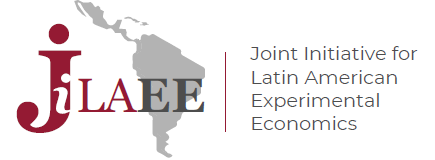
Current visitors at JILAEE

Diogo Geraldes (University College Dublin)
-
Diogo is an Assistant Professor at the School of Economics, University College Dublin, a Research Fellow at the Geary Institute for Public Policy, a CESifo Research Network Affiliate, and a Researcher at the Science of Diversity and Inclusion Initiative (SODI.org). In addition, Diogo serves as Co-Chair of the Irish Economic Association Behavioural Economics Network.
Broadly speaking, Diogo's main research interests lie in Behavioral Economics, Experimental Economics, Game Theory, and Human-AI Interactions. In his research, Diogo employs experimental methods to investigate topics such as bargaining behavior—particularly gender differences in bargaining—, competitive settings, lying behavior, and Human-AI interactions. Moreover, Diogo is an advocate for and active participant in large-scale forecasting, reproducibility, and replication studies.
Diogo holds a Ph.D. in Economics from Maastricht University, a M.Sc. from Pompeu Fabra University, and a B.Sc. from Nova SBE. He has also been a visiting scholar at the University of Chicago, New York University Abu Dhabi, and Columbia University. -
-
-
Friday, March 28th, 2025 9 CT/11 ART. REGISTER

Germán Reyes (Middlebury College)
-
Germán is an Assistant Professor in the Economics Department at Middlebury College and an Associated Member of IZA Institute of Labor Economics. My research interests are primarily in behavioral economics and labor economics. I mainly study cognitive limitations, the selection of talent, fairness views, and inequality.
-
-
Germán will be conducting research examining how elites view fairness and efficiency in economic redistribution, focusing on experimental evidence from MBA students. The project analyzes how future business leaders make redistribution decisions when inequality stems from luck versus effort, and how they weigh fairness concerns against efficiency costs.

Diego Mariño Fages (Durham University)
-
Diego is an Assistant Professor at Durham University specializing in political economy. His research encompasses a wide range of topics, utilizing both experimental and non-experimental data. Key areas of his work include the cultural assimilation of immigrants, the impact of elections on the rise of hate speech, the influence of group size on cooperation, and motivated forecasts during the last Argentinean elections, among others.
-
-
Diego is developing a subject pool for experiments in the Northeastern region of Argentina. He recently leveraged this subject pool to study how individuals form motivated forecasts about inflation, unemployment, and the future value of the official and black market (blue) dollar. During his visit, Diego will conduct an experiment to explore the vertical transmission of beliefs and values from parents to their children. He will also look for new collaborations to study issues in Latin America.
-
Friday, August 2nd at 11am ART.

Anujit Chakraborty (UC Davis)
-
Anujist is an Assistant Professor of Economics at UC Davis. He received his Ph.D. in Economics from the University of British Columbia, under Professor Yoram Halevy in 2017. His research fields are Economic Theory, Behavioral Economics, and Experimental Economics.
-
-
Anujis together with Luca Henkel will be drafting the results of their joint experimental project "Interpersonal Uncertainty", so that they can have a working paper out by the end of the visit. They also plan to start working on a new project related to social norms.
-
TBD

Gary Charness (Profesor, UC Santa Bárbara. Director of the Experimental and Behavioral Economics Laboratory, UC Santa Bárbara)
-
Gary Charness is a researcher in Experimental and Behavioral Economics. Some of his research interests include Behavioral Game Theory, Experimental Labor Economics, Communication, Contract Design, Field Interventions, and Individual Decision Making. He is a member of several editorial boards and a main editor at "Games and Economic Behavior". Gary completed his PhD program at UC Berkeley. His hobbies include softball, playing games of all sorts and on all levels, and subconscious decision-making.
-
-
Gary Charness will be giving a talk on “What have we learned about public policies using lab experiments”.
After the talk we will share a glass of wine with all the participants and the speaker.
Join us by registering in the button below

Tanjim Hossain (University of Toronto)
-
Tanjim Hossain is the Chair of the Department of Management - UTM and a Professor at the Rotman School of Management and the Department of Economics at the University of Toronto. He is also cross appointed to the Department of Economics. He serves as a chief scientist at the Behavioural Economics in Action at Rotman (BEAR) center. His main research interests include behavioral economics, applied microeconomics, and quantitative marketing, especially using field and laboratory experiments to test the validity of theoretical predictions in the real world. His research has been published in American Economic Review, Management Science, Marketing Science, Quarterly Journal of Economics, and the Review of Economic Studies, and has been featured in The Economist, USA Today, and other news outlets. He serves as an associate editor of the journal Management Science.
-
-
Friday, August 11th, 2023, 9am CDT/11am ART

Brit Grosskopf
-
Brit Grosskopf joined the University of Exeter Business School as a Professor of Economics in September 2013. She was Head of the Economics Department from September 2014 until December 2022. Originally from Germany, Brit did her undergraduate degree in economics at the Humboldt University in Berlin. She completed her PhD dissertation Social Preferences and Learning in Experimental Games under the supervision of Rosemarie Nagel at the Universitat Pompeu Fabra, Barcelona, in 2000. She then spent three years at Harvard Business School, where she was a post-doc with Al Roth (Nobel Laureate, Economics 2012). Brit then took a tenure-track job at Texas A&M University where she was granted tenure in 2009. She moved to the University of Birmingham as a Professor in Experimental Economics in 2011, where she founded the Birmingham Experimental Economics Laboratory (BEEL) of which she was the Director until she joined Exeter.
Brit’s research interests lie at the intersection of economics and psychology. She uses experimental methods to study individual and group behaviour with a particular interest in social preferences, reasoning, learning, reputation, identity and happiness. Brit has obtained research support from the National Science Foundation, the British Academy and the Russell Sage Foundation.
Nationality: German
-
-

Carlos Gómez González
-
Carlos is a postdoc at the Department of Business Administration at the University of Zurich. His research uses sports as a lab to analyze behavior and social issues; more prominently, participation and inequality. His latest projects rely on experimental methods to examine ethnic discrimination, test the effectiveness of policies from governing bodies, and identify gender biases.
-
-
Carlos will be working on a project on ethnic discrimination in amateur soccer clubs in Argentina. Additionally, he will explore collaborations with governing bodies to design low-cost policies to improve diversity and research partnerships in Latin America.
-

Suanna Seung-yun Oh
-
Suanna Oh is an assistant professor at the Paris School of Economics. Her research is at the intersection of development and behavioral economics. Her projects investigate how cultural or behavioral biases affect labor market outcomes in developing countries. She is a research affiliate at briq and CESifo. She received a Ph.D. in Economics from Columbia University.
-
-
Suanna will be mainly working on two projects that study how gender norms influence women's labor market engagement and productivity.
-
Tuesday, February 28th, 2023. REGISTER HERE

Tabaré Capitán
-
Tabaré Capitán is a postdoc at the Department of Economics of the Swedish University of Agricultural Sciences in Uppsala. His research is in behavioral economics, environmental and natural resource economics, and the intersection of both fields. He received his B.A from the University of Costa Rica, and his PhD in Economics from the University of Wyoming.
-
-
Tabaré will be strengthening his network and research portfolio in Latin America, with a focus on environmental issues. Building on current work on household’s waste management using field experiments in Sweden, one goal is to explore the issue in Buenos Aires to identify features of the problem that generalize (or don’t) across contexts. A second goal is to explore the conditions for a meaningful shift in meat consumption towards alternative protein sources, from the consumers’ side. A third goal is to explore the (true) welfare effects of new transportation technologies, such as e-scooters, in cities. A broader goal is to develop a better understanding of the region to motivate future work.
-
Friday, March 3rd, 2023. REGISTER HERE

Catherine Michaud-Leclerc (Laval University)
-
Catherine Michaud-Leclerc is an Assistant Professor of Economics at Université Laval in Canada. She is an applied microeconomist with research interests in the economics of education and development. Her research currently focuses on education systems in the context of Pakistan, Malawi, Brazil and Canada. The topics covered in her work include the interactions of public and private education, the use of technology as a study tool, and college students' achievement. Most of her work uses empirical methods such as reduced-form estimations and randomized controlled trials. She has published her research in the Journal of Development Economics and Economics Letters. She completed her PhD in Economics at the University of Toronto in 2021. During her PhD, she was a visiting researcher at the University of California, Los Angeles (2019) and at Georgetown University (2020-2021).
-
-
Catherine will advance her research agenda on the interactions between public and private schooling, and their impact on education attainment, labour market outcomes, and individual well-being. She will build partnerships with educators in Latin America to design interventions that aim at improving the provision of education and school resources. Furthermore, she hopes to develop strong research partnerships between Quebec and Argentina.
-
October 28th, 11am ART.

Andy Brownback (University of Arkansas)
-
I'm an associate professor of economics at the University of Arkansas specializing in behavioral and experimental economics. I use laboratory, field, and online experiments to study questions about education and public policy. I'm originally from Kansas and received my bachelor's degree from Kansas State University. Before joining the faculty at the University of Arkansas, I studied economics at UC San Diego.
-
-
Andy will be working to develop his portfolio of projects exploring education and public policy through controlled experiments. His specific research areas will include education-technology interventions and vocational training programs.
-
Check the recording HERE

Santiago Hermo (Brown University)
-
Santiago Hermo is a Ph.D. student in Economics at Brown University interested in labor and urban economics. He is currently studying the effects of collective bargaining between unions and firms on wage inequality and rent-sharing. Other recent work includes the effect of labor market returns on skill acquisition in Sweden and the effect of minimum wage policies on local housing markets in the US. Before pursuing his PhD, Santiago studied the determinants of relative wages and inequality in Argentina and the effects of R&D on agricultural output. Santiago obtained his BA at the Universidad de Buenos Aires and his MA at the Universidad del CEMA (both in Argentina).
-

Visiting fellows program: Proff. Jeffrey Flory (Claremont McKenna College)
-
Jeffrey Flory is an Associate Professor of Economics at the Robert Day School of Economics and Finance, Claremont McKenna College; and a Research Director at the Science of Diversity and Inclusion Initiative (SODI.org). Professor Flory uses field and lab experiments to deepen our understanding of labor market inequalities across gender/race/age, our knowledge of how different incentives affect worker behavior, and more broadly our understanding of “diversity, equity, and inclusion” (DEI) in the workplace. His research aims to leverage novel experiment designs to uncover key relationships and answer important open questions in economics, as well as to help employers, organizations, and practitioners advance their goals. His research has been published in top economics journals such as the Review of Economics Studies, the Journal of Human Resources, and the Journal of Development Economics. He has been working with industry the last 8 years to advance the research in DEI and to translate research into action---work that led him to launch the Science of Diversity and Inclusion Initiative (SODI) in 2017 while a visiting scholar at the University of Chicago Economics Department. SODI, co-founded with another experimental economist and two corporate DEI practitioners, comprises a network of over 150 behavioral scientists and leaders in DEI around the world committed to deepening and advancing the science of DEI, and closing the gap between research and practice in the field of diversity, equity, and inclusion.
Professor Flory also does work in development economics, with a focus on financial services for the poor, with research stemming from field experiments in Malawi. He has advised major US corporations, governments, multilateral aid agencies, and international NGOs – designing and running field experiments to test questions of top priority for policymakers and practitioners, while at the same time conducting research to advance our understanding of economics and human behavior. He has received research grants from the National Science Foundation, the Russell Sage Foundation, the World Bank, DFID, and the Low Institute of Political Economy, and his research has been featured in media outlets such as Time Magazine, ABC News, Freakonomics, and Science Daily.
-
-
Building on his past research on the economics of diversity equity and inclusion, Professor Flory is developing a series of experiment ideas centered on the economics of social identity with applications to inequalities in labor markets, financial markets, and education in Brazil, Chile, and Argentina. one project will focus for example on the different incentives, barriers, and implications of switching race/ethnic affiliation (“passing”, when race/ethnicity is ambiguous) compared to socioeconomic class affiliation (social mobility)
-
Check the recording HERE
